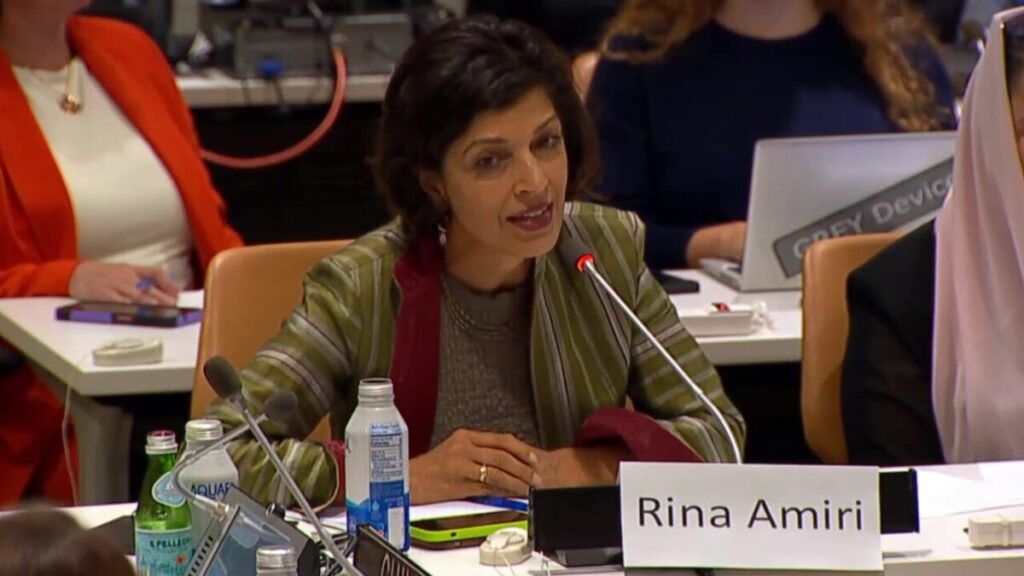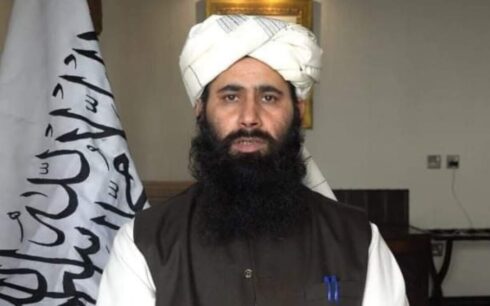John Mark Pommersheim, U.S. Deputy Assistant Secretary of State for South and Central Asian Affairs, this week assumed responsibility for directing U.S. foreign policy on Afghanistan.
Pommersheim joins Karen Decker, the U.S. Chargé d’Affaires for Afghanistan, and Rina Amiri, the U.S. Special Envoy for Afghan Women, Girls, and Human Rights, in leading U.S. engagement with Afghanistan. According to the U.S. State Department, this leadership team is tasked with navigating complex issues, including counterterrorism, human rights, and the ongoing humanitarian crisis.

He brings a wealth of regional experience to his new role. Most notably, he served as the U.S. Ambassador to Tajikistan from 2019 to 2022, where he frequently addressed security concerns related to Afghanistan. Tajikistan, with its 800-mile porous border with Afghanistan, is particularly vulnerable to cross-border threats such as terrorism, drug trafficking, and human trafficking.
“Tajikistan’s southern border abuts some of the most unstable regions of Afghanistan, where groups like ISIS and the Taliban operate,” Pommersheim said during his tenure in Tajikistan.
He underscored the U.S.’s role in training Tajikistan’s border guards and supporting justice reforms aimed at curbing regional threats. His deep understanding of Afghanistan’s northern neighbors has been seen as an asset as he takes on his new responsibilities.
A veteran of complex diplomatic posts
Pommersheim’s diplomatic career extends beyond Central Asia. He has held senior positions across multiple countries, including as Deputy Chief of Mission at the U.S. Embassy in Kazakhstan and Director of the Office of Caucasus Affairs at the State Department. In these roles, he managed U.S. relations with key strategic players like Armenia, Azerbaijan, and Georgia, while also working in political sections in Japan, China, Belarus, and Germany.
His experience in China and Russia adds another layer of strategic insight to his new role. Pommersheim’s experience working in high-stakes environments is expected to guide U.S. efforts to address Afghanistan’s complex regional dynamics under Taliban rule.
The U.S. policy approach to Afghanistan
With the Taliban in power, Afghanistan’s private sector, civil society, and financial systems have faced mounting pressures, particularly as international sanctions have targeted key Taliban figures. The Taliban-controlled central bank, led by Noor Ahmad Agha, remains sanctioned, and the country’s assets are frozen in the U.S. and Europe. The international community has also underscored that these measures are aimed at the Taliban leadership, not the Afghan people.
During his time in Tajikistan, Pommersheim dealt with issues involving Afghanistan, including negotiations on the fate of aircraft flown by Afghan pilots who fled to Tajikistan after the Taliban takeover in 2021. “These aircraft will not be handed over to the Taliban because they do not belong to them,” he said at the time, signaling his firm stance against conceding to Taliban demands.

No shift in U.S. policy, but questions remain
Although Pommersheim’s appointment signals renewed leadership, U.S. officials maintain that the fundamental approach toward Afghanistan remains unchanged. Karen Decker, the U.S. Chargé d’Affaires for Afghanistan, on Thursday reiterated during a briefing with journalists that U.S. priorities remain focused on preventing Afghanistan from becoming a hub for terrorism and ensuring the Taliban fulfill their commitments on human rights. Decker also emphasized the importance of securing the release of American detainees held by the Taliban.
Some analysts suggest that the replacement of U.S. Special Representative Thomas West may indicate a reduced emphasis on Afghanistan in U.S. foreign policy. “The dismissal of the U.S. special envoy indicates that Afghanistan no longer holds a special place in U.S. foreign policy,” said Nasrullah Stanikzai, an international relations analyst.
A diplomat with deep regional experience
Pommersheim is expected to navigate these challenges with a firm grasp of the region’s complexities. Fluent in Russian and with some knowledge of Farsi, Pommersheim has long been involved in U.S. relations with countries that share borders with Afghanistan, giving him unique insight into the geopolitical dynamics at play.
Holding degrees from Bucknell and Columbia Universities, Pommersheim’s academic and professional background has prepared him to handle the intricate policy decisions surrounding Afghanistan’s future. He is married and has three children.





